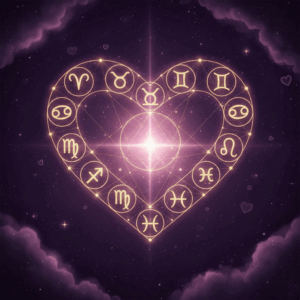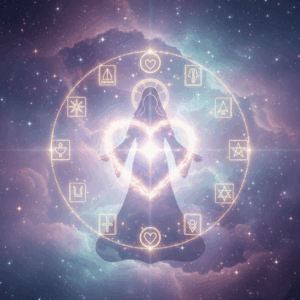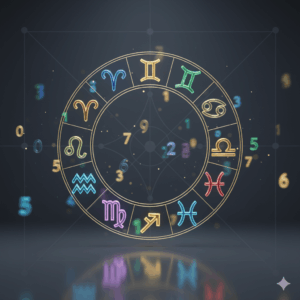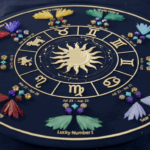Summary:
-
The final scene of Wicked featuring Cynthia Erivo’s Elphaba has gone viral, captivating audiences worldwide.
-
Despite being shared widely on social media, the pirated footage of the scene has sparked controversy.
-
The debate over piracy reflects the changing dynamics of fan engagement and movie distribution in the digital age.
The final scene of Wicked has become a viral sensation. In a breathtaking display, Cynthia Erivo’s Elphaba soars through the skies of Oz, singing “Defying Gravity” as she defies both gravity and expectations. Her soaring performance has earned standing ovations in theaters and become the emotional centerpiece of the first installment of Universal’s highly anticipated Wicked film adaptation. However, while moviegoers are marveling at the spectacle in theaters, the grand finale is being shared widely on social media platforms like X (formerly Twitter) and TikTok, giving fans across the globe a taste of the magic – for free.
The four-minute scene, which has been filmed and posted in its entirety, has ignited a broader conversation about the changing nature of movie theater behavior and the rising trend of piracy on social media. Although these pirated clips are not officially sanctioned by Universal or the filmmakers, they have gained millions of views in a matter of days. From high-definition videos of Erivo’s breathtaking notes to footage of Ariana Grande’s comedic rendition of “Popular,” fans are documenting and sharing their favorite moments, including surprise cameos from Broadway legends Idina Menzel and Kristin Chenoweth. And as the Wicked phenomenon continues to grow, the viral posts are sparking both enthusiasm and controversy.
The Rise of Social Media Piracy in Movie Theaters
Movie piracy, of course, is not new. In the past, bootlegs of films would circulate illegally on torrents or other file-sharing platforms. However, the social media landscape has dramatically shifted the way audiences engage with films. With smartphones in hand and social platforms offering quick, viral sharing capabilities, moviegoers now routinely record and upload videos directly from their seats, capturing entire scenes or high-impact moments like Wicked’s “Defying Gravity.”
One of the reasons for the proliferation of such pirated footage is the evolving relationship audiences, particularly younger viewers, have with content. According to a top film executive who spoke on the condition of anonymity, younger moviegoers now view content differently. “They have a different relationship with the material,” the executive said. “It’s all just content to them. If something strikes a chord, they want to share it instantly.”
This shift in behavior has also been reflected in the release of major films, such as Deadpool 3 in July 2024. For that film, footage captured in theaters and shared by audiences made waves across social media platforms, with director Shawn Levy and actor Ryan Reynolds even engaging with fan-generated content. In Wicked’s case, viral clips of Erivo’s show-stopping number and Grande’s take on “Popular” have become just as integral to the film’s popularity as the official marketing campaign.
The Challenge of Preventing Piracy in the Age of Social Media
Despite the widespread posting of pirated footage, movie studios have largely struggled to curb this phenomenon. While most studios, including Universal, employ dedicated anti-piracy teams that monitor for leaks and illegal uploads, the sheer volume of posts on social platforms makes it nearly impossible to stop them all.
ADVERTISEMENT
Cybersecurity experts and filmmakers alike agree that traditional anti-piracy efforts, such as blocking torrents and removing pirated films from illegal streaming sites, are still effective at preventing the distribution of full movies. However, these teams are not equipped to deal with the hundreds of thousands of posts that emerge from social media users filming scenes inside theaters. As one insider put it, it’s like “playing whack-a-mole” with thousands of new illegal uploads every day.
Universal Pictures has not publicly commented on the piracy issue, though a source familiar with the studio’s operations confirmed that internal teams are actively removing illegal footage as quickly as possible. However, some film industry insiders argue that, while piracy remains a legal and ethical issue, these viral moments might actually help drive interest in films – especially for younger audiences.
Could Piracy Be Helping Movies?
While piracy may seem like a threat to box office earnings, some believe it could be beneficial in the long run. For example, the Wicked posts on social media have generated immense buzz, with fans creating viral “Before and After” challenge videos. In these clips, viewers film their reactions as they head into the theater and then again after seeing the climactic “Defying Gravity” number. Their tear-streaked faces and overwhelmed reactions have become part of the movie’s viral marketing campaign, generating organic excitement and further encouraging others to see the film in theaters.
Some marketing experts argue that this kind of guerilla-style content is the modern equivalent of promotional stunts used in the past. “It’s similar to filming audience reactions for a horror movie preview and using that footage in TV ads,” said one PR professional. “It’s an evolution of how we engage with audiences today. It’s about the experience, not just the product.”
Piracy Debate Divides Moviegoers and Cinema Advocates
However, not everyone is embracing the shift in behavior. Cinemas, in particular, have long been vocal about protecting the theatergoing experience. Many theater chains, including the popular Alamo Drafthouse, have taken a firm stance against audience recording. When a user posted footage of Wicked on X, the Alamo Drafthouse account responded with a blunt message: “Or, don’t do that.” Many users echoed the sentiment, pointing out that recording and sharing in-theater footage is not only illegal but undermines the collective theater experience.
Screenwriter Nic Curcio weighed in, saying that he appreciates Wicked for inspiring public discussions about piracy. “I love that Wicked is bringing so many good things into the world, but my favorite part is the mass public shaming of bad behavior at the movies,” he wrote on social media.
ADVERTISEMENT
The Future of Movie Piracy and Fan Engagement
As the debate over piracy continues, it’s clear that the rules of moviegoing are shifting. While the industry works to clamp down on illegal footage, the rapid spread of social media clips reflects the evolving landscape of fan engagement. Studios may find themselves caught between preventing piracy and embracing the free marketing that comes with viral content.
For now, fans of Wicked can continue to celebrate the film’s iconic moments – whether they’re in the theater or watching from home. As for the future of cinema, one thing is certain: moviegoers have found new ways to interact with films, whether studios approve or not.









